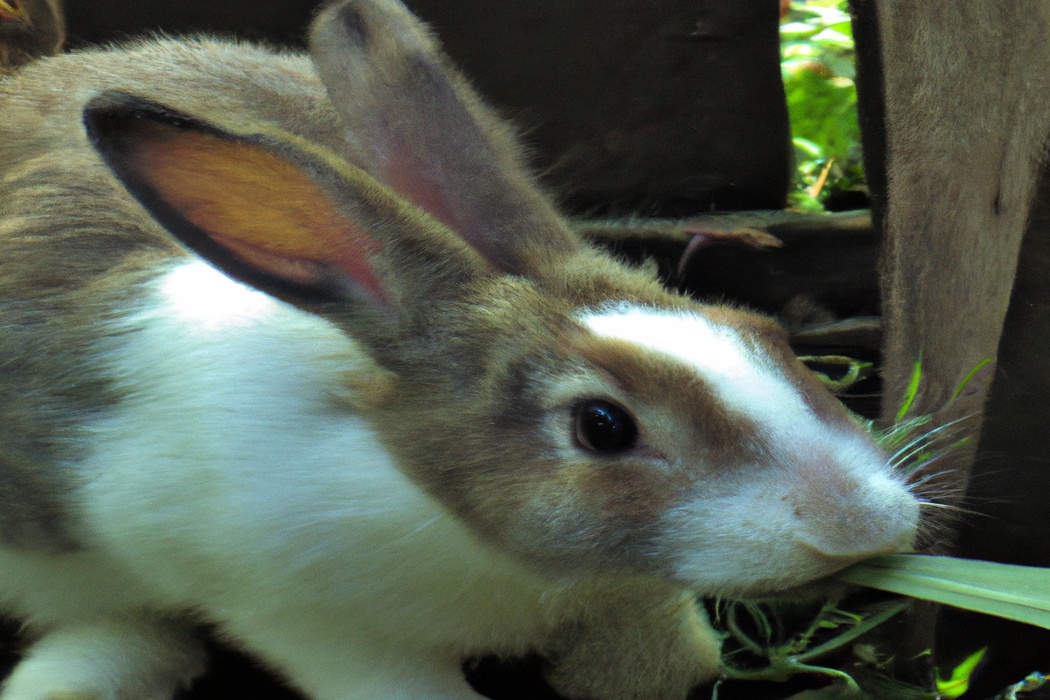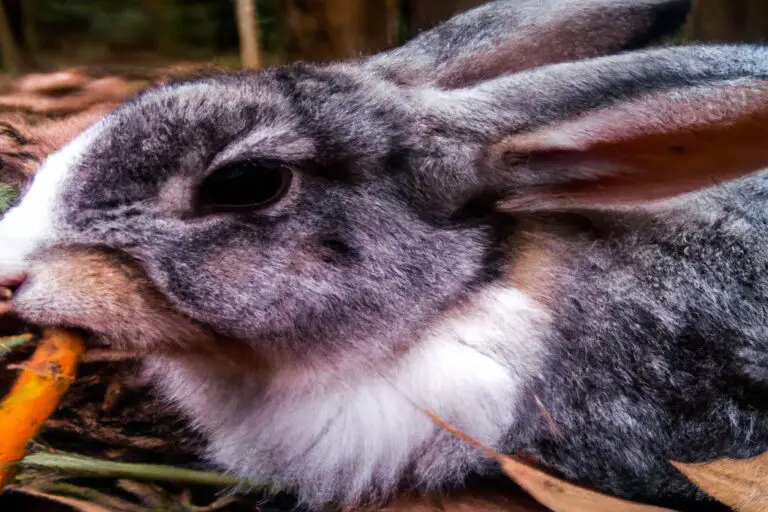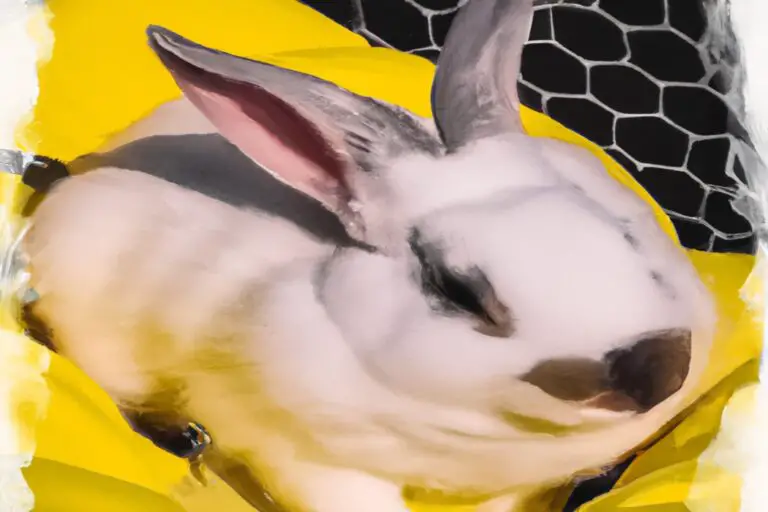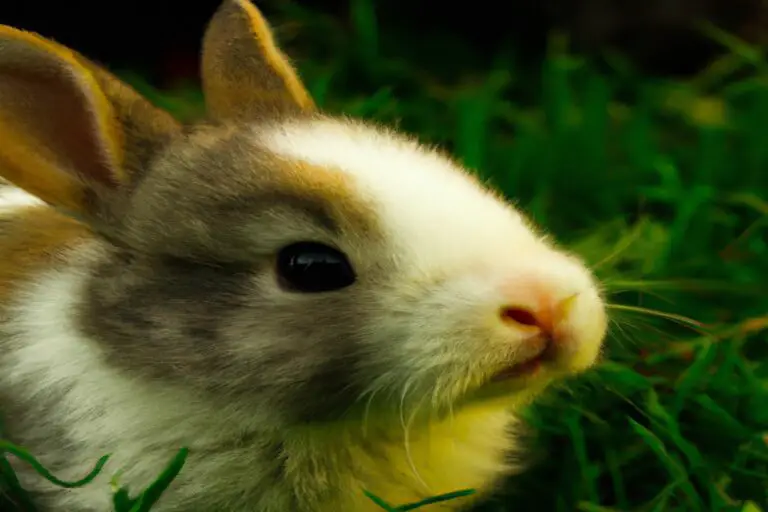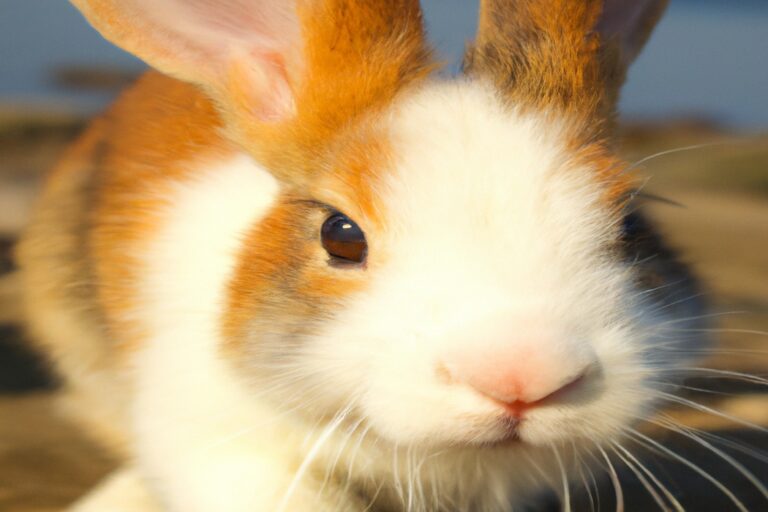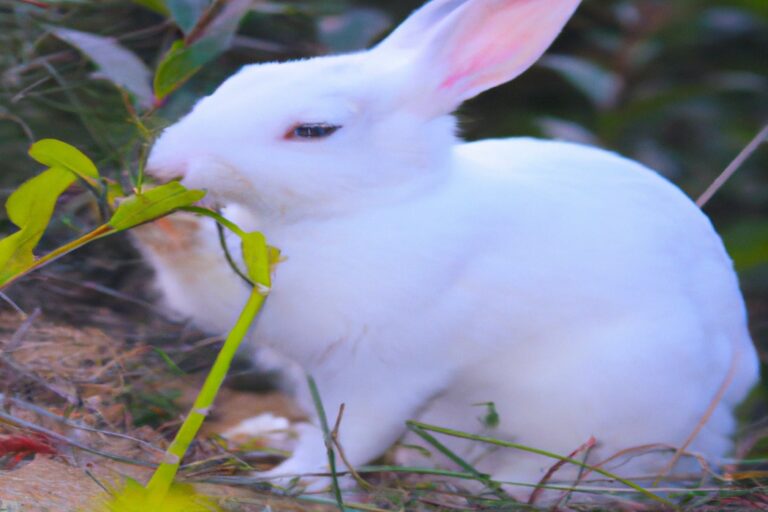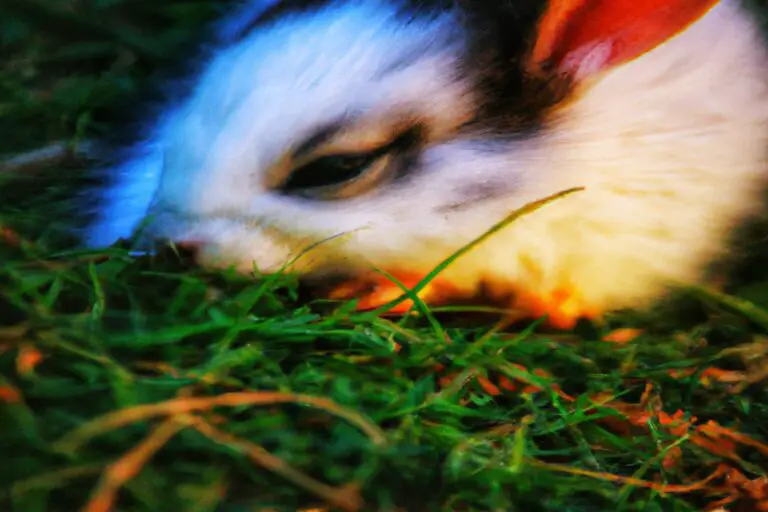How To Save a Dehydrated Rabbit – Life-saving techniques!
Key Takeaways:
- Hydration is crucial for a dehydrated rabbit’s recovery.
- Rehydration solutions can be used to replenish a dehydrated rabbit’s fluids.
- Providing fresh water and moist foods can help prevent dehydration in rabbits.
- Timely veterinary intervention is necessary for severe cases of dehydration in rabbits.
Imagine this scenario: you come home to find your beloved pet rabbit looking weak and lethargic.
Panic sets in as you realize that your furry friend might be dehydrated.
But fear not! You’re in the right place to learn how to save a dehydrated rabbit.
In this blog post, we will guide you through the steps to take in order to assess your rabbit’s condition, provide essential fluids, and seek veterinary assistance if necessary.
We will also share invaluable tips on preventing dehydration in rabbits.
So, let’s dive in and ensure the well-being of your furry companion!
| Steps | Materials |
| 1. Seek Veterinary Advice | – Veterinarian contact – Rehydration solution |
| 2. Provide Fluids | – Syringe or dropper – Water or rehydration solution |
| 3. Adjust Diet | – Fresh vegetables – High-fiber pellets or hay |
| 4. Encourage Rehydration | – Moistened vegetables or fruits – Water sources |
| 5. Monitor Progress | – Digital scales – Hydration chart |
Understanding Dehydration in Rabbits
Dehydration is a common issue in rabbits where they lose more fluids than they consume, leading to potential health problems.
What is dehydration in rabbits?
Dehydration in rabbits occurs when their bodies do not have enough water to function properly. This can happen due to various reasons such as hot weather, illness, or inadequate access to water.
When a rabbit becomes dehydrated, it can lead to serious health issues and even be life-threatening if left untreated.
Signs of dehydration in rabbits include lethargy, dry mouth, sunken eyes, and reduced urine output. If you suspect your rabbit is dehydrated, it is important to seek veterinary care immediately to prevent further complications.
Causes of dehydration in rabbits
Dehydration in rabbits can occur due to various reasons. Some common causes include insufficient water intake, hot or humid weather, diarrhea, and illness.
Rabbits have high water requirements, and if they do not drink enough, they may become dehydrated quickly.
Additionally, extreme temperatures can cause excessive sweating in rabbits, leading to dehydration. Certain illnesses, such as gastrointestinal issues, can also result in dehydration due to fluid loss.
It is vital to monitor your rabbit’s water intake and provide proper care to prevent dehydration.
Signs and symptoms of dehydration in rabbits
Dehydration in rabbits can be a serious issue, so it’s important to know the signs and symptoms to watch out for.
Some common indicators of dehydration in rabbits include dry and sticky mouth, loss of appetite, sunken eyes, lethargy, dark yellow urine, and thickened saliva or mucus.
If you notice any of these signs, it’s crucial to seek immediate veterinary care to prevent any further complications.
Hydration plays a vital role in your furry friend’s health, so being aware of these symptoms can help you catch dehydration early and take necessary steps to save your rabbit.
Immediate Steps to Take
Assess the rabbit’s condition, provide water, and administer electrolytes immediately to treat dehydration.
Assessing the rabbit’s condition
To assess the condition of a dehydrated rabbit, start by observing its behavior.
Is it lethargic and uninterested in food or water?
Check the rabbit’s hydration level by gently pinching its skin: if it remains “tented” instead of springing back into place, this indicates dehydration.
Look for other signs like dry mouth, sunken eyes, and a lack of urine or feces.
If you suspect dehydration, it’s important to act quickly to ensure the rabbit gets the necessary care.
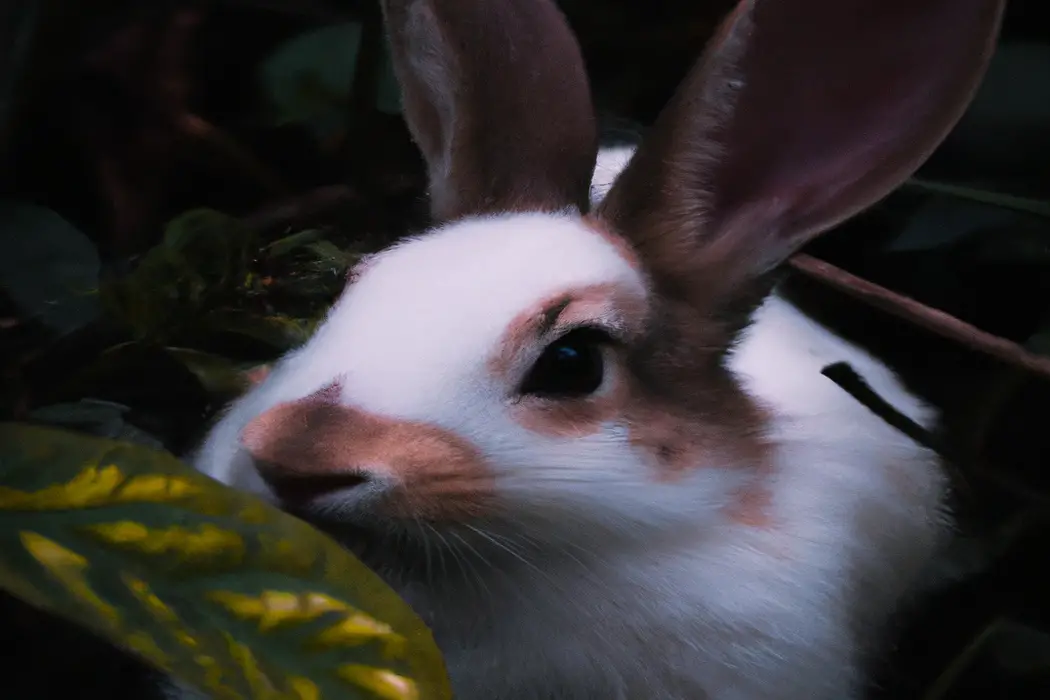
Providing water to a dehydrated rabbit
If you have a dehydrated rabbit on your hands, providing water is crucial. Here are the immediate steps to take:
- Offer your rabbit fresh water in a shallow dish or a water bottle with a spout.
- Ensure the water is clean and free from contaminants.
- If your rabbit is unable to drink on its own, you may need to syringe-feed water slowly and gently.
- Monitor your rabbit’s water intake closely and encourage drinking regularly.
Remember, dehydration can be serious for rabbits, so it’s important to seek veterinary assistance as soon as possible.
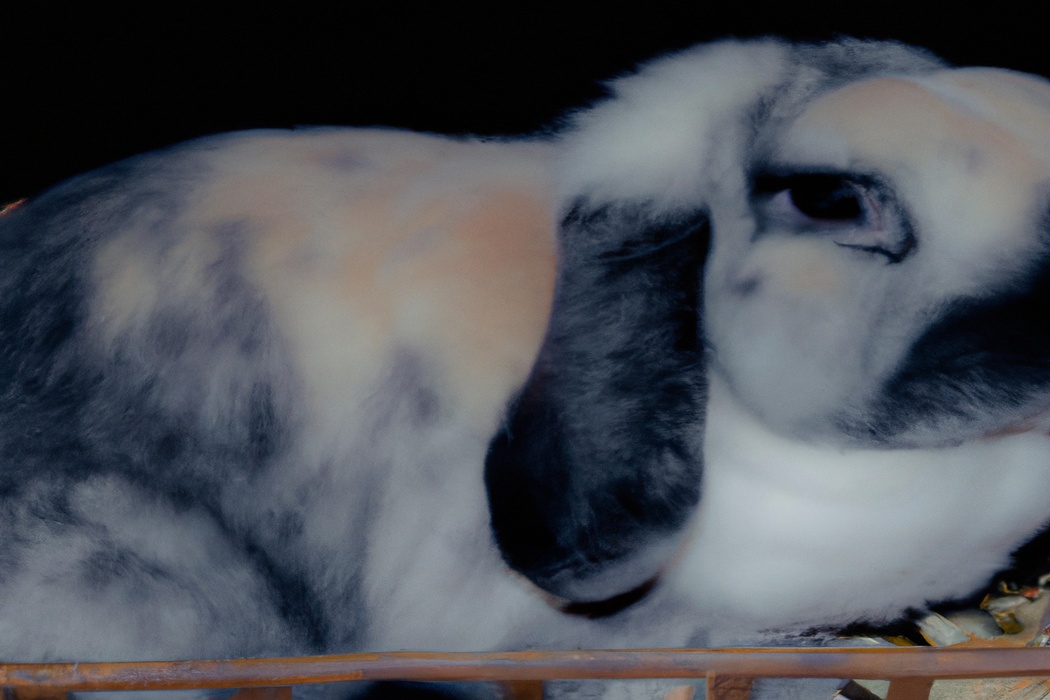
Administering electrolytes to a dehydrated rabbit
To administer electrolytes to a dehydrated rabbit, you can follow these steps:
- Prepare an electrolyte solution by mixing the appropriate amount of electrolyte powder with water, following the instructions on the packaging.
- Use a syringe or a small bottle with a nipple to feed the electrolyte solution to the rabbit. Make sure the syringe or bottle is clean.
- Offer small amounts of the electrolyte solution at regular intervals, rather than giving a large amount all at once. This will help prevent choking or vomiting.
- Gently hold the rabbit and slowly administer the electrolyte solution into its mouth. Be careful not to force the liquid and allow the rabbit to swallow at its own pace.
- Monitor the rabbit’s progress and make sure it is responding well to the electrolyte treatment. If there are no signs of improvement or if the dehydration worsens, consult a veterinarian for further guidance.
Remember, administering electrolytes is just one part of the treatment for a dehydrated rabbit.
It is essential to address the underlying cause of dehydration and provide appropriate care to ensure the rabbit’s well-being.
Seeking Veterinary Assistance
If your rabbit is dehydrated, it is important to consult a veterinarian for proper assessment and treatment.
When to consult a veterinarian
If you notice any signs of dehydration in your rabbit, it’s a good idea to consult a veterinarian.
Dehydration can be dangerous for rabbits and may indicate an underlying health issue.
Additionally, if you have tried to rehydrate your rabbit at home but haven’t seen any improvement, it’s best to seek professional help.
Remember, a veterinarian will have the expertise and resources to properly diagnose and treat your rabbit.
What to expect during a vet visit for a dehydrated rabbit
When you take your dehydrated rabbit to the vet, there are a few things you can expect. First, the veterinarian will conduct a thorough physical examination to assess your rabbit’s overall health.
They will likely check their hydration levels, heart rate, and temperature.
The vet may also ask you questions about your rabbit’s diet and behavior. Based on the examination findings, the veterinarian may recommend further tests, such as bloodwork or urine analysis, to determine the underlying cause of dehydration.
Treatment options will be discussed, which may include fluid therapy, dietary changes, or medication.
The vet will provide you with instructions on how to care for your dehydrated rabbit at home and schedule any necessary follow-up appointments.
Treatment options and recommendations
When treating a dehydrated rabbit, it’s important to act quickly. Here are some treatment options and recommendations to consider:
- Rehydration: Offer your rabbit fresh water and monitor their intake closely. If they’re not drinking, you may need to administer fluids orally using a syringe or seek veterinary assistance.
- Electrolyte supplementation: Dehydration can cause an imbalance in electrolytes. Consult with a veterinarian about using a specialized electrolyte solution to restore your rabbit’s electrolyte levels.
- Wet foods: Encourage your rabbit to eat moist foods such as leafy greens or wet pellets to increase their fluid intake.
- Shelter and comfort: Ensure your rabbit has a quiet and comfortable environment to recover in. Provide a warm area with soft bedding to help them relax.
- Professional guidance: If your rabbit’s condition doesn’t improve within a few hours or if they show other concerning symptoms, seek immediate veterinary assistance. They can provide specific treatments and support tailored to your rabbit’s needs.
Remember, early intervention and close monitoring are key to helping a dehydrated rabbit recover.
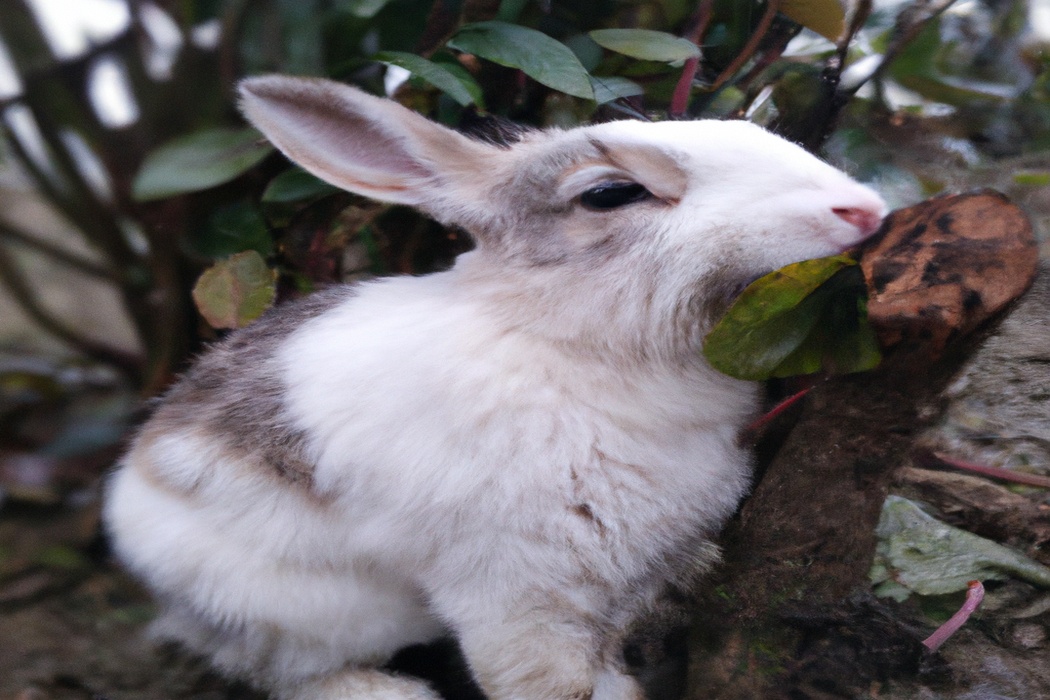
Preventing Dehydration in Rabbits
To prevent dehydration in rabbits, ensure they have constant access to fresh water and maintain a healthy environment for optimal hydration.
Hydration guidelines for rabbits
To keep your rabbit properly hydrated, make sure they always have access to fresh, clean water. Provide a water bottle or a heavy ceramic bowl that can’t be easily tipped over.
Check the water level daily and refill as needed.
Additionally, feed your rabbit fresh vegetables and leafy greens that have a high water content, such as lettuce and cucumber. These guidelines will help ensure your rabbit stays hydrated and healthy.
Ensuring access to fresh water
When it comes to ensuring the well-being of your rabbit, access to fresh water is essential. Make sure your rabbit always has a clean and accessible source of water available.
Ideally, use a water bottle with a sipper tube, as it keeps the water clean and prevents spills.
Check the water bottle regularly to ensure it hasn’t become clogged or empty. Additionally, consider providing a shallow dish of water as a backup option in case the water bottle malfunctions.
Remember, rabbits need access to fresh water at all times to stay hydrated and healthy.
Managing rabbit health and environment for optimal hydration
To ensure optimal hydration for your rabbit, there are a few key aspects of their health and environment that you should manage.
Firstly, make sure your rabbit always has access to fresh, clean water.
You should check the water bottle or bowl daily to ensure it is not empty or contaminated.
Secondly, provide your rabbit with a diet that is high in water content, such as fresh vegetables and leafy greens.
Avoid feeding them only dry pellets.
Finally, create a comfortable and stress-free environment for your rabbit, as stress can contribute to dehydration.
Keep them in a well-ventilated area and avoid exposing them to extreme temperatures.
By taking these steps, you can help keep your rabbit properly hydrated.
Frequently Asked Questions
Can I use a syringe to give water to a dehydrated rabbit?
Yes, you can use a syringe to give water to a dehydrated rabbit. Fill the syringe with water and slowly inject small amounts into the rabbit’s mouth.
Be gentle and careful not to overwhelm the rabbit.
It’s important to monitor the rabbit closely and seek veterinary assistance if the dehydration persists.
What are signs of severe dehydration in rabbits?
Signs of severe dehydration in rabbits include dry and sticky gums, sunken eyes, loss of skin elasticity, decreased urine output, and lethargy. Rabbits may also have a poor appetite, become weak or unable to stand, and display an increased heart rate.
It’s important to seek veterinary assistance immediately if you suspect your rabbit is severely dehydrated.
Can dehydration be a symptom of an underlying health issue?
Dehydration can indeed be a symptom of an underlying health issue.
When our bodies do not have enough water, it can be a sign that something else is going on.
Conditions such as diabetes, kidney disease, and certain medications can all contribute to dehydration.
It’s important to pay attention to other accompanying symptoms and consult a healthcare professional for a proper diagnosis and treatment.
Remember to stay hydrated by drinking enough fluids throughout the day and listen to your body’s signals.
Final Verdict
Understanding dehydration in rabbits is crucial for their health and well-being.
Recognizing the signs and causes of dehydration is the first step in taking immediate action.
Assessing the rabbit’s condition and providing water or electrolytes can help rehydrate them.
However, seeking veterinary assistance is necessary in severe cases.
Preventing dehydration through proper hydration guidelines and managing their environment is key.
Remember, dehydrated rabbits require prompt attention, as dehydration can be a symptom of an underlying health issue.
By following these steps, you can save a dehydrated rabbit and ensure their continued vitality.

